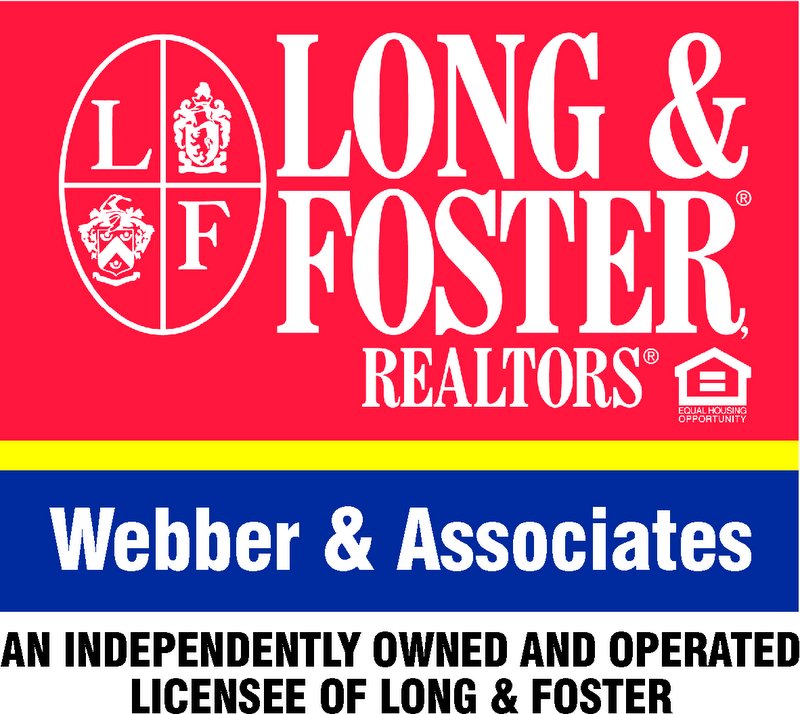Here are some of the common answers I receive:
• I want to make lots of money.
• My family has dabbled in it.
•
I have some family money or land which I’d like to develop.
•
I know so & so who is in the business.
•
I heard about it in school and wanted to know more
I used to own a business and leased from a commercial broker.
• I was in banking/lending/architecture, etc.
So you see, the motivations are quite different and in some of these cases, the person seeking information already has a leg up on the person off the street but doesn’t know what to do with it (or even that they have it)!
Do You Make More Money in Commercial Real Estate?
Let’s try some math to compare residential vs. commercial real estate.
Residential example: Agent sells $275,000 home. Agent co-brokes. Agent’s firm gets 3%. Agent gets 65% of his/her firm’s share. Agent’s commission = $5,362.50.
Commercial Example: Agent leases 7500 SF, 3 year lease, $12/sf. Co-brokes, agent’s firm gets 3%. Agent gets 65%. Agent’s commission = $5,265.00
Oh ho! What about selling a $50,000,000 shopping center? Well, likely, you won’t be doing many (if any) of those right away. Sure, you can make a pile of dough on big deals, but they take much longer. One of mine took three years (and it was nowhere near $50M)! I had a bunch of marketing and promotion bucks in it and had it cratered (which it threatened to do several times) I would have been out that money.
Most residential deals (even the big ones) usually close within 1–2 months of contract. Not so on most commercial deals. Even the 7,500 SF lease example above could have taken six months or more to get done and paid.
Since I am one of the few commercial real estate instructors (outside the higher level designation programs like CCIM, SIOR, CPM, etc), I receive numerous calls from past attendees of my classes.
Major Categories of Non-Residental Real Estate
There is very little information about commercial real estate training, unlike the wealth of information about residential real estate. While there are many different avenues one can take in residential real estate, there are even more (and they are more distinct, I think) in non-residential real estate. Let’s take a look at the major categories of non-residential real estate:
• Office
•
Retail
• Industrial
• Institutional
• Investment
• Resort/Recreational
• Land Mixed Use
Is there an overlap? Yes. Are there sub-specialties within these categories? Yes. For example, in larger markets, a broker or developer may specialize in only high rise offices in a certain part of town. In small markets, to survive, most brokers do a little of everything, even residential, as the market does not have the depth to allow specialization unless they do most of their deals out of their area or handle a very large area.
So why do the resources seem so limited? I would say that there ARE vast resources, but they are industry-specific, not marketed nor directed toward the general public or even the commercial real estate generalist. However, one must be aware of the numerous professional organizations in commercial real estate to know where to look. Also, many of the publications are somewhat technical, filled with industry jargon, again, meant for those in the business. Some information may be restricted to its members.
Don’t worry, later on in this article, I will list many of the organizations so that you may look them up, peruse their offerings and make your selections based upon your needs and direction. I say up front that I do not know of any “Sell a Multi-Million Dollar Shopping Center in 60 Days” type of book you would find on Amazon. The publications which have what most folks are seeking will be available through industry related organizations. It’s the nature of the business.
Beginning the Process
OK, to get started, let’s say that you are either a successful residential real estate agent or a business person looking to change careers. You are not sure which area of commercial real estate you’d do best. You have business experience and you know people. (We’ll call these folks your “sphere of influence”.) What should you do? Here is the advice I give everyone:
List everyone you know in commercial real estate . Also call all of your relatives and closest friends and list everyone they know in commercial real estate.
What you are going to do is what is known as “an informational interview.” You are NOT seeking a position, because you don’t know what you want yet or where you may fit in. Most of us are somewhat clueless at this stage and to ask for a position when you are clueless is a mistake and can perhaps make us look very stupid. Not the way to begin a new career which depends upon reputation and business savvy. Here are the steps:
•
Stop! Before you do anything else, research the person you plan to meet and research their firm. Doing your homework will make you appear savvier, plus it will help you frame your questions.
• Call first those from your list you feel will give you some time. Ask for a 15-minute slot. Explain that you are gathering information only, not seeking a position at this time.
• During the interview, ask the real estate professional how he/she got started and what advice would they give a newcomer. Ask for a brief overview of their business and their industry. Before you leave, ask for 2–3 names of others you should talk to. Ask if you can say that this person referred you. (This can really open doors for you.) Thank the professional for his/her time. Send thank you follow up note a few days later. (Not an email, please.)
• Continue to call those on your list for informational interviews. At some point, you will begin to eliminate areas of commercial real estate and start honing in on those areas we are becoming interested in. When you think you have narrowed it down, go to the industry-specific websites (shown later in this article) and do some research. What should you seek? Well, get to know the jargon, types of projects and key players. You can do this by reading their publications. (Oh, yes, do ask your helpful contacts if you can have or borrow some industry publications, usually found in the reception area or their library.) Visit company websites to learn more. Look at projects done by local companies or projects that are brokered by the companies you are interested in.
• Create some questions about these projects.
• Attend as many commercial real estate classes as you can. Not only will you learn; you will probably make your BEST contacts there.
• Get an idea of compensation structure. Some are commission only, some may be draw against commission, some may be salary. Decide what you can live with and what you can’t. Unless you have something swell to bring to the table (i.e. you are the Wal-Mart heir), you will not be in much of a position to negotiate. Feel free to try, there’s usually a little wiggle room, but if others are seeking the same opportunities as you.
• You are now ready for serious interviewing. Narrow your final choices down to no more than five. Unless you are in a very large market, commercial companies will know exactly who is in the market and whom they have talked to. Just like commercial properties, we don’t like to have them “shopped.” Hence, you need to narrow your list down.
Diving Deeper
At this point I am usually asked, “Should I go with a developer or a general broker?” I answer, “It depends. Will you have some product to market? No? Then I think you should start with someone who does.” Starting with a developer allows a new broker to learn the product and market with the safety net of having a “captive product.” Eventually, the brokerage community will know you and you them, through your marketing of your developer’s real estate. You can decide once you have some experience behind you what you should do next. But this article isn’t about your life in commercial real estate; it’s about getting started, so back to getting our toes wet.
Call back your contact person for another meeting. Explain that you have talked to many professionals, have narrowed it down to XYZ field (retail, office, etc), you’ve visited some of their deals/listings and have some specific questions.
Carefully define what you can offer a firm. Are you knowledgeable about the restaurant industry? Do you have a degree in engineering? Are you a computer geek? Develop yourself into a product the commercial firm will want.
When you meet, ask your questions, share what you have learned (we are a gossipy bunch so any appropriate tidbit you can share without sounding gossipy will earn you some attention) and ask what opportunities his/her company has.
Keep in mind that most commercial firms don’t have “openings” but create slots depending upon need or opportunity.
Explain what you can bring to the table. Remember that the company is interested only in WIIFM (what’s in it for me)? Don’t rattle on about your wants, needs and desires unless specifically asked, then be brief. Who cares?
If you have an “in” USE IT! If your dad and the company head are golf buddies and you have decided that you can do well there, go for it! THis is how most opportunities are created.
OK, You got a Position. How to Establish Yourself.
• Once again, attend every commercial real estate event. (You’re probably not doing deals yet anyway, so it’s something to do.
• Offer to help an experienced broker in your office for either $0 or a very small cut. Offer to do his/her scut work. (runner, put up signs, measure space, hand out flyers, etc.) Send out announcements.
• Ride around and view commercial property. Mark a map with areas. Take photos. List occupants and owners.
• Have your Broker in Charge create a training program for you. (good luck!) Have lunch, etc. with other brokers and learn about their product.
• Have 2–3 brokers who will mentor you. Call them with questions and ask advice.
• Create a resource list – lenders, appraisers, builders, lawyers, architects, engineers, etc who you can bring in on a deal to help you close. Talk with them often and understand their businesses.
• Attend every commercial real estate class you can. Also attend those classes which relate to your business. Start working on a designation.
• Get involved in civic, charitable and government affairs. Get on a city or county commission, join Rotary, get active in a political campaign, etc. The key here is to maximize exposure. Don’t spend too much energy where other, more established real estate professionals are active (unless you want to ally yourself with one of them). You want to be “the go-to commercial real estate person” in your organization.
• Get into a Leadership program.
• Join one or two commercial real estate organizations and get active early. It’s easy because these organizations are always looking for volunteers.
• And WHATEVER you do, if you find yourself in over your head on a deal with a client or customer, don’t try to wing it! Get help. Goofing up a deal can terminate your career quickly, or at the very least, label you a rube (which can have the same effect, but it takes longer and is more painful). Everyone will know. We’re a small group, it doesn’t take long.
• Someone (hopefully your supervising broker) WILL help you when you ask for help. We’ll cut ya for the listing, but once you have it and you need help, we will be there for you. (Of course, we will take the credit for “saving the deal,” but that’s much better than tanking along with your client who will sue your butt off.)
This list could go on and on, but the tips for being successful are pretty much the same in any business, so buy some book on networking or professional development and follow tips.
Keep in mind the most commercial practitioners are a different breed from the residential agent. Most commercial firms are small, most offer little or no training and commercial agents are typically hesitant to share any information, you have to ask and then you still may not get what you need.
We usually work alone, not in teams or groups, jealously guard our potential client list and don’t typically use MLS. In some areas it is like a secret society, you need to know the password and secret handshake to get in.
And once in we still don’t freely share information. Most of us don’t participate in regular meetings or commercial real estate “group activities”, we don’t show property at night or on the weekends and we don’t have our photo on our business cards.
Now the exception to all of this is the practitioner whose market is smaller and does both residential and commercial. The pure commercial agent tends to more closely align with investment bankers.
Some Resources
Some organizations offer advanced education and designations. The designations are shown after the organization’s name in parentheses.
• CCIM Institute (CCIM)
• Counselors of Real Estate (CRE®)
• Institute of Real Estate Management (CPM®)
• Realtors® Land Institute (ALC)
• Society of Industrial & Office Realtors® (SIOR)
• National Association of Realtors®
• Realtors® Commercial Alliance
• International Council of Shopping Centers (many)
• Building Owners and Managers Association (RPA)
• Urban Land Institute
Commercial Real Estate Women
• www.ccim.com
• www.cre.org
• www.irem.org
• www.rliland.com
• www.sior.com
• www.realtor.org
• www.REALTOR.org/rca
• www.icsc.org
• www.BOMA.org
• www.uli.org
• www.nncrew.org
There are many other “commercial related” organizations and groups and they are also specialized and typically for the advanced or corporate commercial real estate executive.
Several of the above organizations are also comprised of experienced practitioners, but most offer educational programs available to all, and are therefore, a good resource for a new agent.
What can one expect as far as compensation, hours, etc., in this exciting business? Well, it depends. If the market is strong and/or the agent well connected with product or buyers, the sky is the limit.
Because of the nature of commercial real estate, it is hard to cite “average” compensation of a broker accurately. Unless a new broker comes in with product or buyers or is placed at an active project, it may be months before a deal is done and then another few months before it is closed and the agent is paid.
In some areas, the practice is to pay part of the commission when a lease is signed and the balance when the tenant takes occupancy. In other areas, it may be all paid when the tenant takes occupancy. With a sale, commission is typically paid when the deal closes.
There are brokers I know who make $125,000. I know some who make $500,000 +. Ironically, I know some that have made $500,000+ one year and $150,000 the next. It can be a cruel business. It takes time to build a good reputation and only minutes to ruin it. It also takes time to develop the savvy to be trusted with the bigger deals. Training (outside the national designation programs) is hard to find.
Why would anyone want to subject themselves to this? Ah, a commercial practitioner becomes part of the community, knows what’s what and who’s on first. Commercial real estate involves so many other industries, banking, investment, construction, architecture, engineering, etc., that the active commercial broker quickly becomes a known figure in the area and may have an influence on the growth and development of the community.
For those in development, driving by a building he/she created adds a certain continuity and permanence to life in our rather disjointed and disposable society.
Cindy S. Chandler, CCIM, CRE, is the past Chair, REALTORS Commercial Alliance. The Chandler Group, Charlotte, NC 28226. She is the author of The Insider's Guide to Commercial Real Estate.









